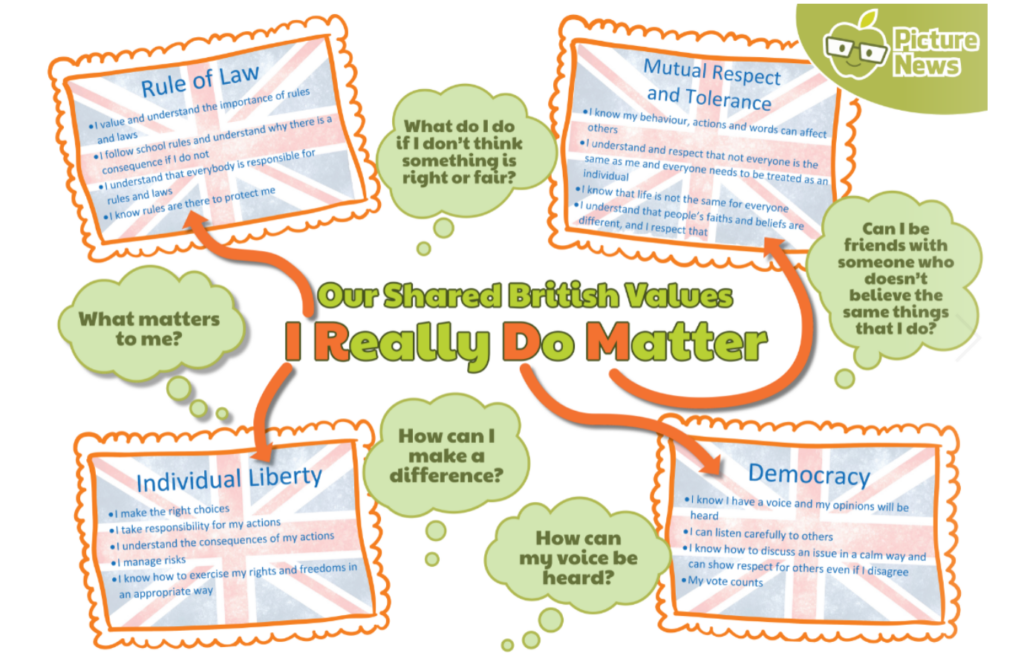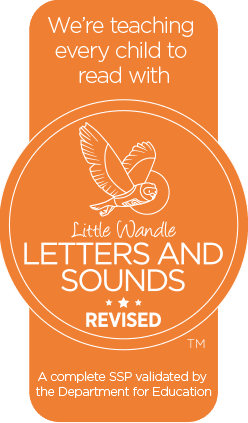Subject Leader: Mrs Maxwell
Promoting British Values
The Department for Education state there is a need “to create and enforce a clear and rigorous expectation on all schools to promote the fundamental British values of democracy, the rule of law, individual liberty and mutual respect and tolerance of those with different faiths and beliefs.”
At Applegarth, we promote British values through assemblies, collective worship, our curriculum and in the way we conduct ourselves as adults and pupils every minute of every day. We endeavour to give our pupils (and the wider school community) a voice when it comes to decision making in school. That might be in the form of voting for the story they want to hear at the end of the day; voting democratically School Council, Eco Council, Pupil Ambassadors and House Captains; involving pupils in staff recruitment; subject leaders gathering pupil voice about subjects and key issues in school; the Growing Up in North Yorkshire Survey for Years 2 and 6; and parent/carer and staff surveys.
| British Values Policies & Documents | Download |
| Promoting Fundamental British Values as Part of SMSC | Download |
| Fundamental British Values Progression | Download |
What are British Values?
Schools have been asked to explain how they promote British values. So what are British values?
There are certain values that have been attributed to being British by the government and some institutions, and these fall into the following broad areas:
- Democracy
- The Rule of Law
- Individual Liberty
- Tolerance and respect

At Applegarth Primary School we are committed to these values and regularly reinforce them in the following ways:
Democracy
- Provide pupils with a broad general knowledge of, and promote respect for, public institutions and services eg parliament, police/emergency services.
- Encourage pupils to become involved in decision-making processes and ensure they are listened to in school eg school council
- Help pupils to express their views eg through English lessons and opportunities to present work and opinions
- Teach pupils how public services operate and how they are held to account
- Model how perceived injustice can be peacefully challenged.
The Rule of Law
- Ensure school rules and expectations are clear and fair
- Help pupils to distinguish from right and wrong
- Help pupils to respect the law and the basis on which it is made within history
- Help pupils to understand that living under the rule of law protects individuals
- Include visits from the police, PCSO and other emergency services in the curriculum
- Involve pupils in discussing and rectifying poor behaviour.
Individual Liberty
- Support pupils to develop their self-knowledge, self-esteem and self-confidence.
- Encourage pupils to take responsibility for their behaviour, as well as knowing their rights
- Challenge stereotypes
- Implement a strong anti-bullying culture
Respect & Tolerance
- Promote respect for individual differences – school ethos, teaching of RE & PSHE
- Help pupils to acquire an understanding of, and respect for, their own and other cultures and ways of life
- Challenge prejudicial or discriminatory behaviour
- Organise visits to places of worship
- Develop links with faith communities
- Develop critical personal thinking skills
- Discuss differences between people, such as differences of faith, ethnicity, disability, gender or sexuality and differences of family situations.
Implementation

Year 6 keep a record of collective worship in their class. This serves as a reminder about some of the key things we have discussed in order to help them, and the rest of the school, retain and recall what they have learnt. We are happy to share this with families and visitors so they can reinforce the knowledge we are acquiring.













